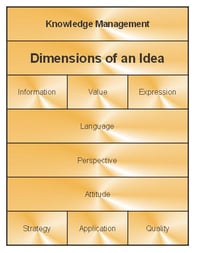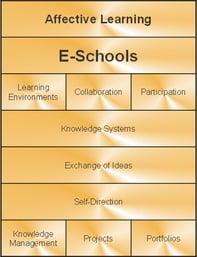Published on
Gaining Leadership Buy-In to Serving Adult Learners

The issue of leadership has been the focus of several books, articles, podcasts, seminars and even graduate degree programs. While the topic encompasses so much, one aspect of leadership that is often discussed is related to how leaders garner buy-in. Quite honestly, this aspect of leadership is foundational for anyone who considers themselves a leader whether by title, position or simply presence. Buy-in is an imperative if one seeks to be impactful in their leadership journey and the initiatives that they undertake.
Throughout my career, several special projects and initiatives have been undertaken and even assigned. Truthfully, some of them have been untraditional in being assigned to someone of my background and experience. They, at times, have been outside the context of my true expertise but have a very clear rationale for how they have been placed under my purview. Contextually, I am a seasoned student affairs practitioner of twenty years, who has professionally served three institutions—and in January will head to my fourth). So, how is it that someone with my background has been fortunate to garner a wide array of experience and exposure while taking on critical initiatives like leading the efforts to support adult learners at an institution that has, like many others, prioritized the experience of traditional-aged college students for much of its history? The answer is complex, but that can be most simply stated as a strong track record of garnering buy-in.
And I have gleaned valuable insights into garnering buy-in, specifically in serving adult learners that I’d like to share below in hopes that they may be helpful to you in leading these efforts in your institutional context.
Framing the Issue Is Important
The importance of understanding your institutional data cannot be understated. Some would say, “The numbers don’t lie.” In fact, they tell a critical story that undergirds the need for the focus of your work and creates a compelling argument for resources and support.
Questions to consider in framing the issue:
- What are the enrollment trends among adult learners at your institution?
- How do your trends align with those nationally, regionally, statewide and among your institutional peer group?
- What impacts do these trends have on the institutional feel, finance, relevance and the way in which faculty and staff currently fulfill their job responsibilities?
Be Consistent and Intentional in Messaging
In every engagement, meeting and presentation, the importance of the work cannot be overstated, so seek opportunities to bring to light the importance of adult learners and the need to ensure they are serviced well. If outside your normal purview, own the fact that while it may be outside the scope of traditional thinking for your role, there are implications for everyone within the organization no matter their background, expertise or experience. After all, higher education’s foundational goal is to spur student success that results in graduation and preparedness for the world that awaits them whether they are adult learners, student parents or traditional-aged college students.
Opportunities to consider in consistent and intentional messaging:
- Faculty and Staff Senate meetings
- Departmental meetings
- University conferences at the outset of academic terms
Be Inclusive and Enlist Support
Keep in mind that everyone within the institution has a role to play—from the most senior level administrator to the groundskeepers, so make sure no one is left out from the conversation on supporting adult learners. Often, the most valuable insights relate to how to structure supports come from those that interact most with students day to day, so while decision-making may come from the top, those decisions must be informed in real time by feedback garnered from those closest to the issue. Additionally, if feasible, enlist the support of colleagues and professional networks to acquire external voices and expertise that might spur internal considerations and decision-making.
Questions to guide the inclusivity of your work in gaining buy-in:
- Who is missing from the table?
- When you consider training opportunities, what times in the semester or day are best to ensure true engagement across faculty/staff populations?
- What is the explicit relevance of adult learners to every institutional employee?
- Which external voices with expertise in the subject matter and the institutional context in which you work should you seek out?
Be Persistent
Remember that existing support structures at your institution have likely taken countless years to evolve into what they are. While there may be a desire to think about the quick wins, stay focused on creating sustainable models of support that can be sustained long into the future and that help create the landscape of success for all students. Challenge and opposition may arise, but a persistent focus on the long-term goal of supporting adult learners will keep you motivated to continue the work.
Things to consider in being persistent:
- Incremental change is still change, and the cumulative effect of incremental change is broad change
- Opposition comes when power structures are challenged, so take nothing personally and stay on message
- It’s a marathon, not a sprint. Seek not just policy adjustments but the practical implementation that effects efficiency and positive outcomes.
Celebrate Along the Way
With every modification, take time to reflect, frame and communicate to stakeholders the positive impact of what has been accomplished. Home in on the sustainable future being created for the institution and the students it serves. Gratitude for those engaged in the work and their consistency goes a long way to ensuring sustained buy-in.
Things to consider in celebrating along the way:
- What opportunities exist to highlight stakeholder contributions for their peers to see and to aspire to?
- Are there resources you can allocate to meet basic needs (breakfast, lunch, snacks) for your campus partners, so they see that you appreciate their time throughout your work together?
- What opportunities are there to share the good work so many do to meet the needs of adult learners in your campus community (i.e., presentations, articles, interviews, etc.)?
All in all, buy-in is essential to leadership success. It requires selflessness and a willingness to dedicate the time necessary to gain it. But once you have it, you also have stakeholders’ trust in the authenticity of your efforts and the commitment to just making a positive difference right where you are.



